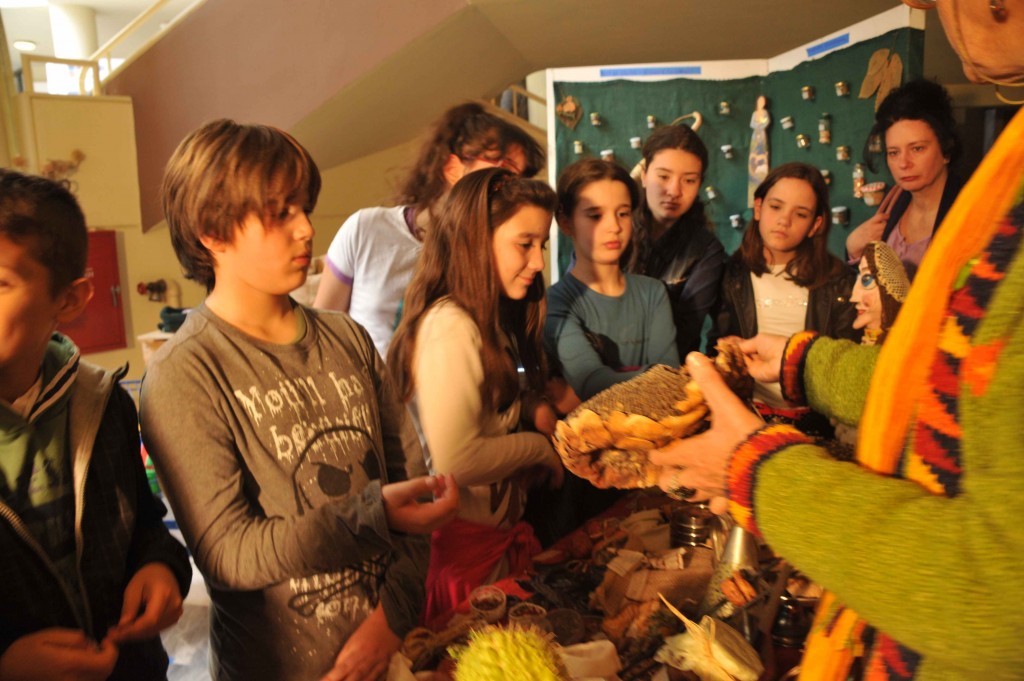From Alex Argyriadis, a PhD Candidate in History and Anthropology at the University of Peloponnese, Greece:
The first Program on Everyday Life and Culture in Greece was recently instituted at The University of Peloponnese. Founder and Head of the Program is the anthropologist C. Nadia Seremetakis (www.seremetakis.com), known worldwide for her influential writings as well as her engagement with and contributions in public anthropology.
The Program, aiming to promote and sustain a dialogue between academia and the wider society, held its first public- multimedia-participatory Symposium on Taste and Memory in the S. Peloponnese (region of Messinia) from March 13 to 19, and will hold, by popular demand, more events in other regions in the coming months.
Based on Professor Seremetakis’s notion of “ethnography as performance” and drawing on her book The Senses Still, this event involved the active, voluntary participation of over 20 schools (elementary and high school) in the region, over 25 local cultural organizations, public organizations such as theater, dance, music, the area authorities (all six Mayors and municipalities of Messinia), 75 university students, and numerous citizens.
As Professor Seremetakis claims, the effective mobilization and collaboration of all these forces in presenting original works for a specific event like this—call it public anthropology, cultural management, public education, or whatever—, can only be attained by “good ethnography—ethnography as both research method and writing. The former trains you to ‘excavate’ and ‘communicate’, the latter to ‘synthesize’ effectively the uncovered fragments.”
This multidisciplinary event featured lectures by renown Greek scholars, artistic performances, and a four-level exhibition which included over 300 student’s paintings and ceramic creations of sweet and salty memories, numerous narrations and poems on “recipes with memory”, as well as collections of gastronomic metaphors in everyday speech, poetry, popular lyrics, ancient texts, fairytales, and much more. These were accompanied by homemade tit-bits and sweets offered by citizens, and local products by world-acclaimed food businesses.
Film projections included a video documentary which showed the mobilization and preparation of schools (students and teachers) in anticipating their participation in the event. This film was also produced by UoP students-doctoral candidates under the supervision of Prof. Seremetakis.
The aftertaste of the event included aesthetic and gustatory interventions in the eating areas of the university by both local citizens and students, as well as the installation of a handmade compost bin on the university campus.
The event was attended by over 500 citizens, 179 of which received certification, among them 76 undergraduate and graduate students, and was covered by local and national media.
As Prof. Seremetakis stated to the media, this certainly offers a different picture of “Greek crisis” than the one prevailing in the news.
This, if I may add, is a prime example of public anthropology in a country where anthropology has no public face.
contact: Program on Everyday Culture, everydayculturehellas@gmail.com



